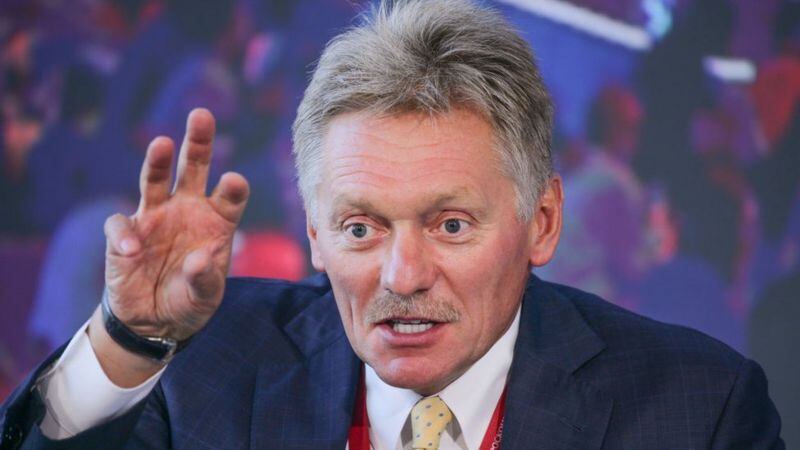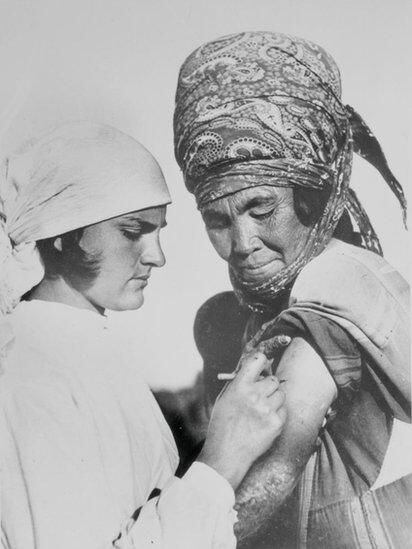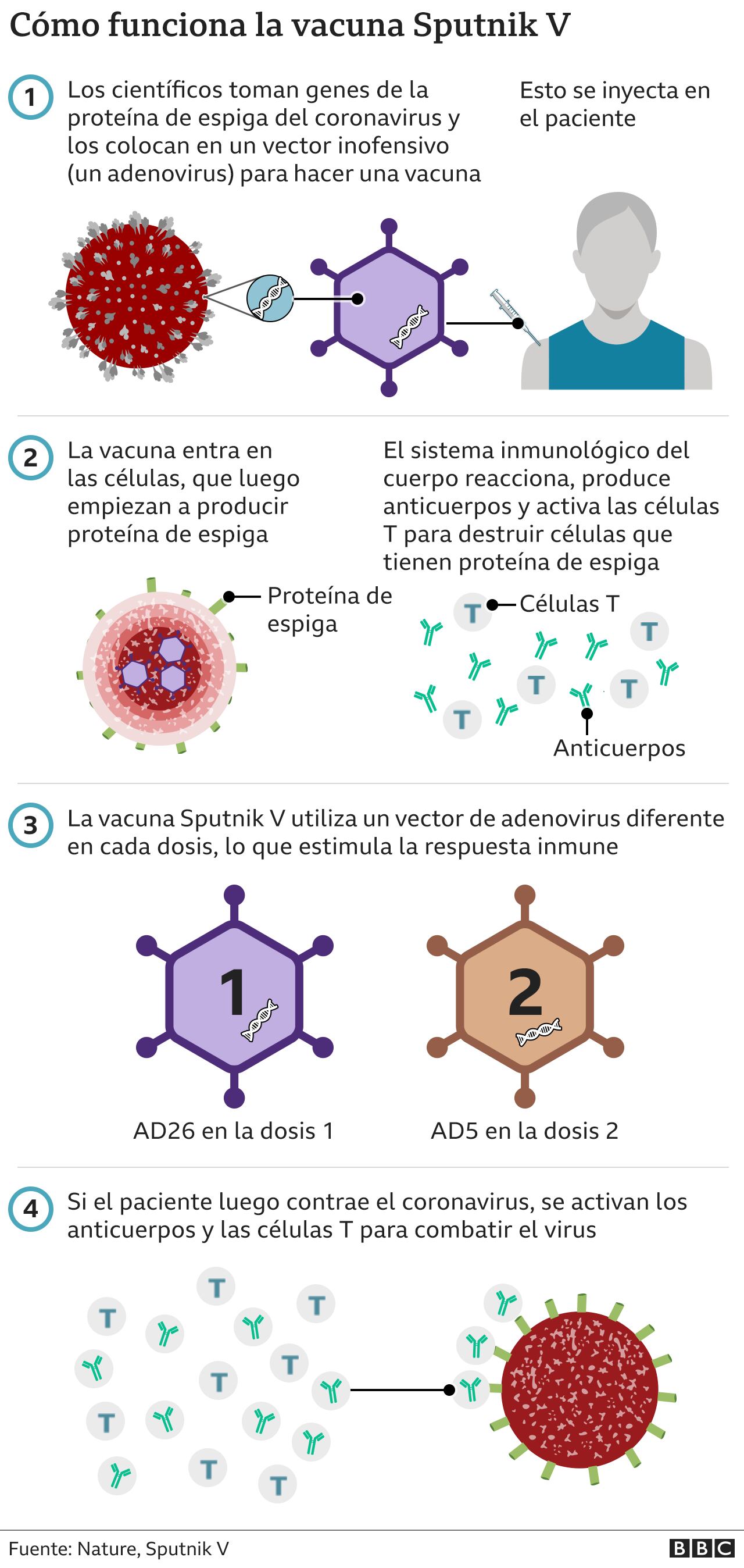At the beginning of August 2020, Russia was placed at the forefront of the global race that had begun to achieve a vaccine against the new coronavirus.
President Vladimir Putin told the world that his country already had the first approved vaccine and announced that in October of that year they would launch a mass vaccination campaign.
SIGHT: Russia exceeds 1,000 daily deaths from coronavirus for the first time in the entire pandemic
Sputnik V, as it was baptized, had been developed by the National Research Center for Epidemiology and Microbiology (Gamaleya) together with the Ministry of Defense.
However, just over a year later, Russia is the fifth country in the world that has registered the highest number of infections (more than 7.8 million) and more deaths (217,000), according to data from Johns Hopkins University in the United States.
- Russia in trouble to fulfill Sputnik V orders: millions await in Latin America
- Russia records double daily record of infections and deaths from coronavirus
- Russia says its single-dose Sputnik Light vaccine is 70% effective against Delta variant
The Eurasian country is currently experiencing a strong wave of infections that also make it the fourth country in the world with the highest number of accumulated cases in the last four weeks: almost 663,000.
During 13 of the last 17 days, the country has registered new records of daily deaths caused by the coronavirus, the most recent number being this Friday: 999 deaths.
He also established a new maximum record of confirmed infections: 32,196.
SIGHT: They claim that Russia stole AstraZeneca vaccine formula to develop Sputnik V against COVID-19
The harsh wave of infections is putting great pressure on available health services.
Denis Protsenko, chief medical officer at Moscow’s main hospital dedicated to covid-19 patients, warned that hospital beds are being filled with critically ill patients, the newspaper reported. Moscow Times.
How is this possible? The cause lies in the low number of vaccinated people in the country: only 31% of the inhabitants of Russia are fully vaccinated and just an additional 3% are partially vaccinated, according to figures from Our World in Data from the University of Oxford.
Vaccine resistance
During the last year, the Sputnik V vaccine served to prop up Russia’s international image and was welcomed in many parts of the world, including Latin America, where its use has been approved in Argentina, Bolivia, Paraguay, Venezuela, Nicaragua, Mexico, Honduras. , Guatemala, Panama, Ecuador, Brazil and Chile, according to the Russian news agency TASS.
In some of these countries there were later problems due to lack of supply and there were complaints from people who, after receiving the first dose, had to wait much longer than expected to receive the second injection.
SIGHT: The US confirms that it will allow the entry of those vaccinated with the doses approved by the WHO, including Sinopharm
In Russia, however, the low number of vaccinated has not to do with the lack of vaccines, but with the resistance of the population to get them.
In a survey by the Levada Center, an institute specializing in public opinion studies in Russia, conducted on August 20, 54% of those consulted said they would not get the vaccine if this is not mandatory, while 38% said yes they would.
The authorities are clear about the problem they are facing.
“Certainly the figures [la tasa actual de mortalidad por covid-19] they are terrible. It is alarming. The main reason is the low levels of vaccinationKremlin spokesman Dmitry Peskov said on October 5.
The official acknowledged that the virus was becoming more aggressive and that the level of vaccination is not sufficient. “

Despite everything, the Kremlin has ruled out for now imposing sanctions against those citizens who do not want to be vaccinated.
As Peskov said on October 11, these types of measures go against the “social nature” of the Russian state, so it is not realistic to propose them.
He indicated that what corresponds in this situation is to appeal to the conscience of citizens to understand that “there is no other way to protect their lives than by getting vaccinated.”
Widespread mistrust
But why are there so many Russians who don’t want to get vaccinated?
“Many have not been vaccinated not because they are convinced against vaccines, but because they have decided to wait,” said anthropologist Alexandra Arkhipova, senior researcher at the Institute of Social Sciences of the Russian Presidential Academy of National Economy and Public Administration.
In an interview with the Russian BBC service, Arkhipova explained that these people’s decision is based on their distrust of medicine and the political elite, but also based on the advice of their trusted doctors.
“In Soviet times, parents were not allowed to evade vaccinations. Thus, refusal to get vaccinated was a form of dissent and, because of this, in some families of the intelligentsia this was accepted and even encouraged ”, he pointed out.

At the same time, the high level of distrust that exists in the country towards medicine and towards politics is also reflected in the rejection of the vaccine.
“Many people say they are not ready to get vaccinated because they don’t trust the way Sputnik V was designed. They are extremely upset by the lack of information about how it was done, what were its side effects, how many people got sick, how severe or mild the disease was, how many of those vaccinated were hospitalized, etc, “added Arkhipova.
He explained that although Russians do not trust medicine, they do trust the doctors they know, but this – paradoxically – has not helped drive vaccinations.
“Many people have been discouraged from getting vaccinated by so-called ‘family doctors’ “, he pointed.
He explained that in Russia vaccination protocols for people who have different diseases are not well developed, something that makes the work of doctors difficult.
“It is just very intimidating for a doctor to take responsibility for recommending vaccines. Often they do not know exactly how the vaccine will affect their patient’s illness. It’s much easier to say: don’t get vaccinated, ”Arkhipova said.
In relation to the way in which distrust towards the authorities affects vaccinations in Russia, the expert pointed out that in the interviews they do in their studies, people mention that officials and high-ranking doctors can lie to citizens without having to face no consequence.
“Lying is not something that is punished in Russia. For the same reason, some people trust imported vaccines more because they believe that if Pfizer’s manufacturers lie, they will be punished for it, “he said.
An additional element that would influence this rejection of vaccines is people’s ignorance about how their own body works.

“Many people do not understand what a virus is, how it operates and enters the body, or what antibodies are. Therefore, such a person has a reduced critical capacity in relation to any rumor, “he said.
And in Russia, as in many other parts of the world, hoaxes and misinformation against vaccines have been rife.
As Arkhipova told the BBC, as of July this year they had amassed a database with about 314 different rumors about the coronavirus, of which 83 are related to vaccines and they had been shared 2.6 million times on social media.
This is another factor that makes it difficult to persuade Russians to get vaccinated against covid-19.
_______________________________________
- Pandora Papers: investigation reveals 35 world leaders hid their fortune to avoid paying taxes
- Melbourne becomes the city in the world with the most days under strict confinement due to coronavirus
- Why New Zealand Decided To Abandon Its “Successful” Coronavirus Total Elimination Strategy (And What’s New)
- A Romanian millionaire among the 8 killed by a private plane crash against a building in Milan | PHOTOS
- President of Ecuador Guillermo Lasso created an ‘offshore’ network to hide his fortune, according to the Pandora Papers
- Simple guide to understanding Pandora Papers, one of the biggest leaks in history
- The Romanovs and the lineage of the last tsars: what was the fate of the descendants of the royal family of Russia?
.

:quality(75)/cloudfront-us-east-1.images.arcpublishing.com/elcomercio/F6JR76HZMZE6HE6ANCOVJRUTAU.jpg)



:quality(75)/cloudfront-us-east-1.images.arcpublishing.com/elcomercio/BQIHZQ2F7BDBPNAUP3BX4Y37DQ.jpg)

